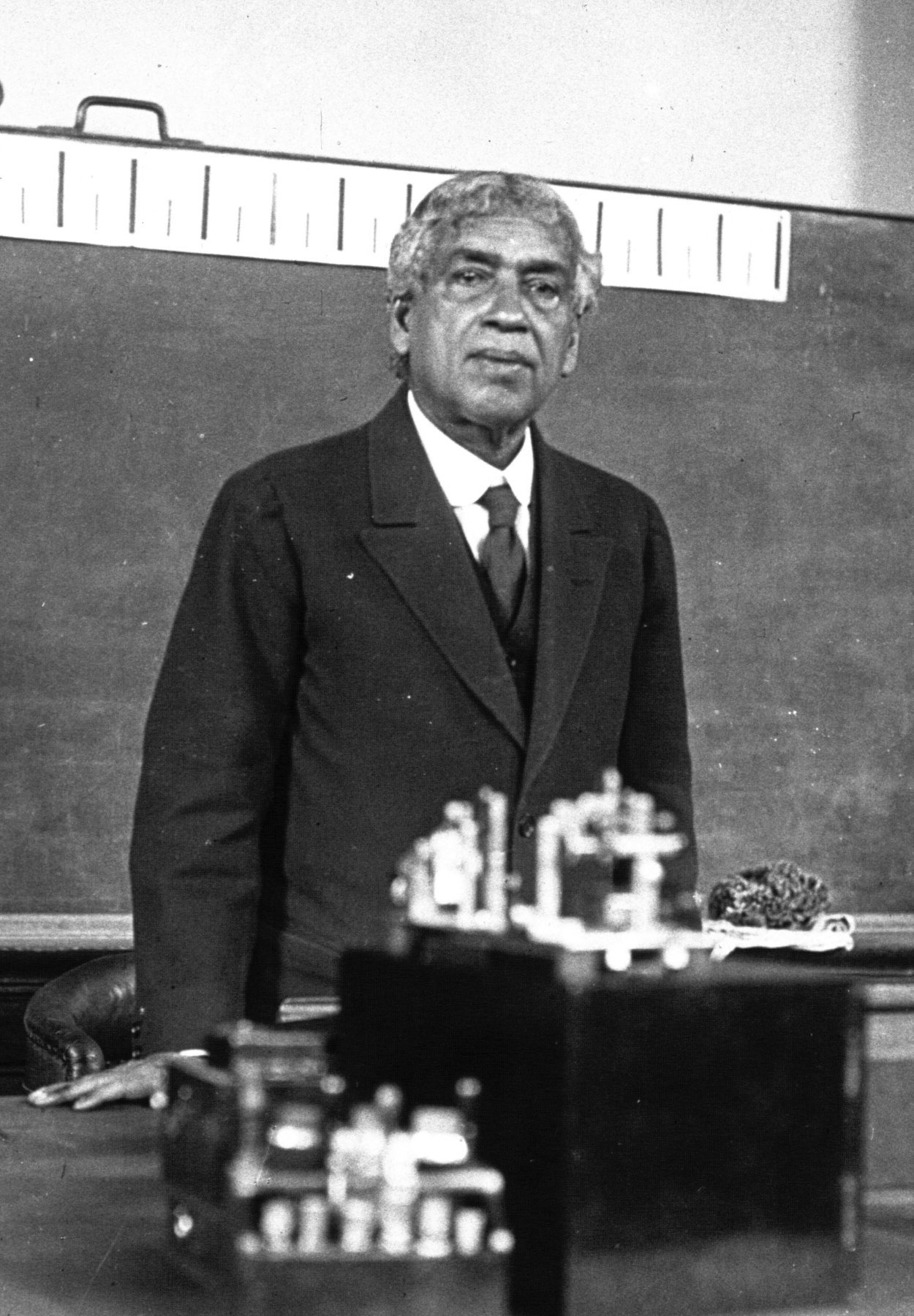In the pages of history are recorded the glorious achievements of many great men whom the world recognises, loves and respects. Such men prove to be a true asset not only to their own countries but also to the world. Their lives become a message and a source of inspiration for generations to come.
Dr. Jagdish Chandra Bose was one such personality who became immortal in the field of science. He was not only a scientist par excellence, but also a warm human being and a modest personality.
ADVERTISEMENTS:
Dr. Jagdish Chandra Bose was worthy and illustrious son of our motherland whom the nation feels proud of. He brought various laurels to our country. Immense hard working capacity, patience and simplicity were hallmarks of his personality. Dr. Jagdish Chandra Bose was a creative and imaginative scientist, a connoisseur of literature and a great lover of nature.
Son of Bhavan Chandra Bose, Deputy Magistrate and native of Ranikhet Decca Jagdish Chandra Bose was born on November 30, 1858. He had his early education in a village school from where he migrated to St. Xavier’s College, Calcutta at the age of thirteen.
After finishing his education in India, he went to England and joined the University of Cambridge where he studied physics and Botany under the distinguished scientists with whom he developed an abiding friendship. He was awarded the S.Sc degree by London University in 1896 and was later elected a fellow of the Royal Society of London.
On his return to India he took over as Professor of Physics at the Presidency College, Calcutta (now Kolkata). Amongst his pupils were stalwarts in science, such as M.N. Shah, J.N. Mukharjee and S.N. Bose.
ADVERTISEMENTS:
As a teacher Dr. Jagdish Chandra Bose did not confine himself only to teaching practical experiments, but also paid attention to abstruse scientific theories. Indeed he was the first experimenting scientist who carried out his experiments and research with instruments of unprecedented delicacy and precision.
Amongst his major scientific discoveries the first was the production of extremely short electromagnetic or radio waves, a project in which he preceded Marconi (the inventor of radio). It was after some forty years, during the Second World War, that these short waves came to be put to in radar functioning.
But his most wonderful discovery was in connection with plant life. The scientists of western countries adopted an attitude of stubborn hostility towards his epoch making discovery but ultimately Bose triumphed. Referring to his contribution his to modern science.
The Encyclopedia Britannica records, after laborious researches, Bose proved to the satisfaction of various scientific bodies that the life mechanism of a plant is identical with that of an animal. His Cresco graph is recorder of plant growth capable of magnifying a small movement as much as ten millions times.
ADVERTISEMENTS:
In the wake of this discovery he was flooded with invitations from Europe, America and elsewhere to give demonstrations of his wonderful discovery. Some eminent scientists of Europe admitted that Europe had been left behind by India and that they must now turn to India for inspiration.
After his retirement from service he founded Bose Institute in Calcutta which has today developed into one of the most important research centre in India, concerned with plan physiology. Such is the reputation built up by the Institute that scientists from foreign countries came and worked here as great professors.
Dr. Jagdish Chandra Bose was also a man of great literary talents. How deep his love for his mother tongue was is well illustrated by his Bengali literary work. He was perhaps the first to demonstrate through his writings that it was possible to explain scientific topics in simple and easily intelligible Bengali language.
The great poet Rabindra Nath Tagore once told him that although he made science his favourite wife, literature could, but for his own neglect will have claimed that position.
Dr. Jagdish Chandra Bose had a profound regard for the ancient wisdom of India and remained till last an Indian to the very core of his being.
In 1937, Dr. Jagdish Chandra Bose breathed his last. This was a colossal loss to our country on the occasion of his birth centenary the Indian Government paid homage to him by issuing commemorative postage stamps bearing his name.
He was a perfect picture of sincerity, simplicity, patience, firmness and dedication. Dr. Jagdish Bose was truly devoted to science. That is why he is relevant to us even today.

